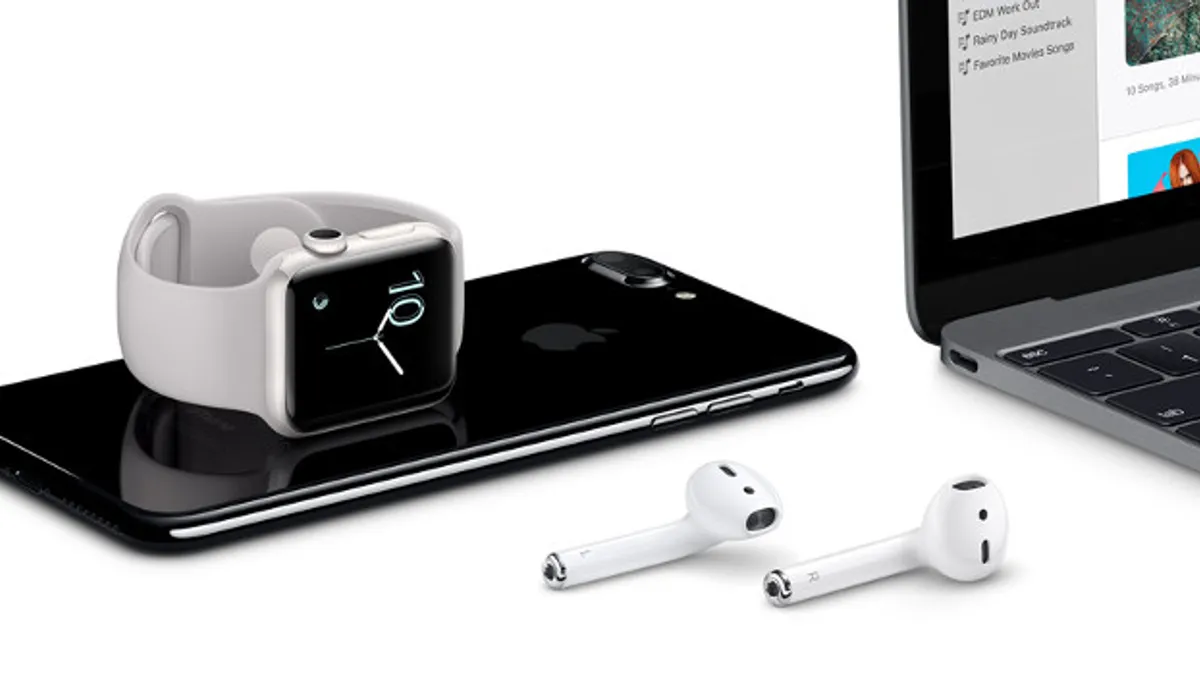Dive Brief:
- Apple's new AirPods will not be easy for recyclers to disassemble according to Kyle Wiens, chief executive of iFixit, following an "AirPod Teardown Review."
- The 4-gram devices are too small to be effectively dismantled by hand, therefore they would need to go into a shredder. However, because each AirPod has lithium-ion batteries glued inside, shredding would increase the possibility of the material catching on fire. An accompanying charging case also contains a third battery.
- Apple has said the devices can be returned for recycling, but a spokesperson did not provide Reuters any additional details on that process. Wiens estimates that there could "easily be a billion of these things over the next 10 years."
Dive Insight:
Since Apple announced in September that the new iPhone 7 would not have a headphone jack, recyclers have been skeptical about what this would mean for e-waste generation. At the time, the main concern was what would become of an estimated one billion or more pairs of headphones already out in the world. Others wondered what would happen if someone lost one AirPod, since they're currently only sold in pairs for $159. Apple has touted its creation of a phone-recycling robot and other sustainability features, but no easy answer was provided on this headphone question.
Based on this analysis by iFixit, one of the leading electronics repair and review companies, the prognosis for sustainable recycling does not look promising. The issue of large brands such as Apple not making their products easy to repair or refurbish — both for recyclers and consumers — has inspired attempts at statewide legislation to change that. So far, none have been successful.
According to reports from national groups and state agencies, these types of small consumer devices will make up a growing percentage of the electronic waste stream in future years. As seen with Samsung's Galaxy Note 7 recall it can be beneficial for manufacturers to design with repair in mind as well. Finding a balance between maintaining proprietary technology and making sure devices doesn't become a waste burden once newer models come out is an issue that companies have yet to resolve.















